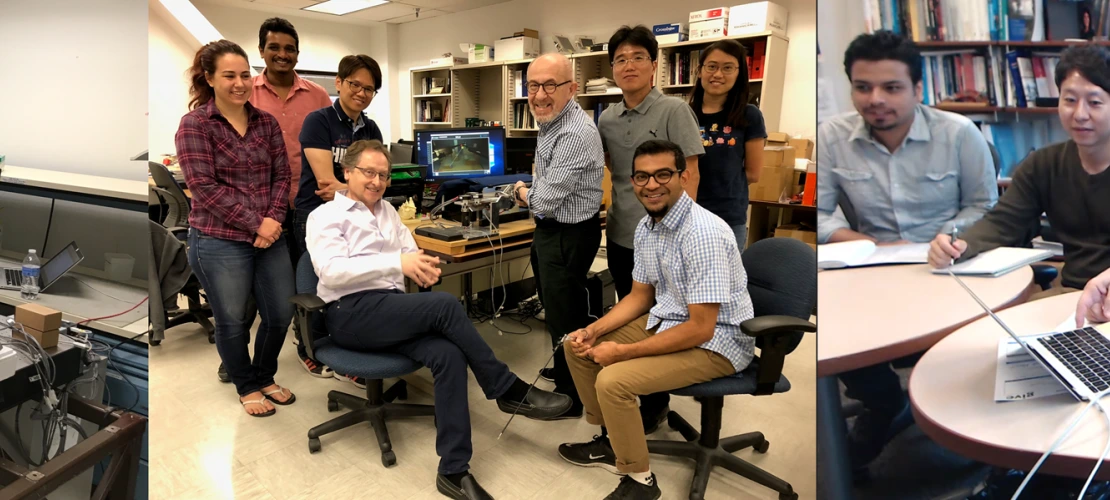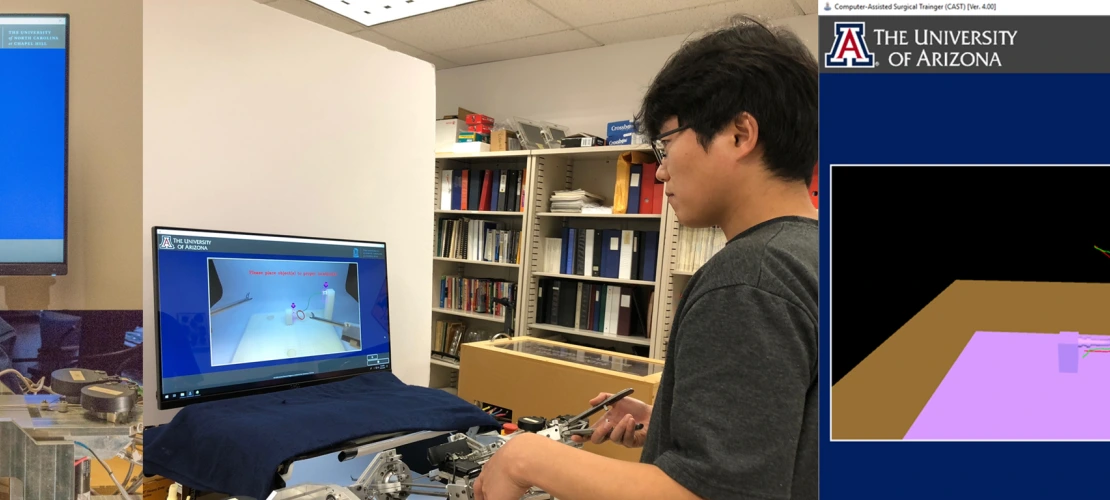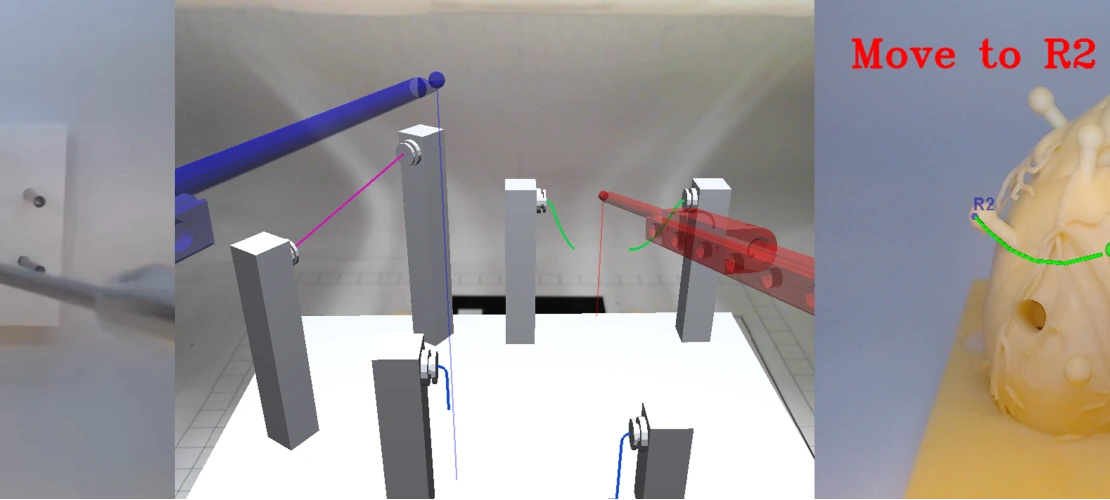Welcome to CAST!
Welcome to the Computer-Assisted Surgical Training website!
This project, supported by the National Science Foundation, Smart and Connected Health Program and conducted in collaboration with the University of North Carolina, Chapel Hill, aims to improve the safety of minimally invasive procedures through technology-assisted training.
More specifically, laparoscopic surgery, when performed by a well-trained surgeon, is a remarkably effective procedure that minimizes complications associated with open incisions, blood loss, and post-operative pain. It also reduces recovery time. However, the procedure is more challenging than conventional surgery due to restricted vision, hand-eye coordination problems, limited working space, and lack of tactile sensation. These issues make laparoscopic surgery difficult to master for medical students and residents. Therefore, effective training and guidance methods are needed to minimize the potential risks inherent in such procedures. The goal of our project is to develop and validate techniques for computer-guided laparoscopic surgical training in a simulated, non-patient based environment. A computer-aided surgical trainer (CAST) --- a prototype developed at the University of Arizona, physically guides trainees’ instruments during surgical skills practice sessions through assistive force and augmented reality displays. Guided training will be validated through a pilot experimental study, in which the expertise of computer-guided trainees will be compared to that of instructor-guided trainees. Data, such as the time it takes a trainee to execute a particular surgical task, how accurate he or she is, etc., will be collected to analyze task performance precisely and objectively.
The innovations of our research are three-fold: didactic, engineering science, and transfer of technology from the laboratory to a clinical and academic medical setting. It is anticipated that computer-guided practice will speed up learning, reinforce good “habits” and techniques, and discourage inferior ones, leading ultimately to better surgical outcomes, and improved patient safety. The CAST system will serve as a sophisticated—as compared to existing trainers—yet still a low-cost solution for fundamental medical skills training. New scientific methods for motion trajectory planning and following using force and augmented reality techniques will result from this work. The ultimate vision behind it is to transfer the technology or parts thereof to training centers and eventually to operating rooms to benefit from real-time computer-guided surgical assistance.
We also aim to increase the participation of undergraduate students, and in particular of underrepresented groups, through collaboration with the well-established programs at both PIs’ institutions, and through sponsorship of senior projects and independent study courses.
We invite you to explore the various facets of this project and contact us in case we can assist with any questions.
Thank you for visiting!
Prof. Jerzy W. Rozenblit
Principal Investigator

The University of Arizona

The University of Arizona

The University of North Carolina at Chapel Hill





